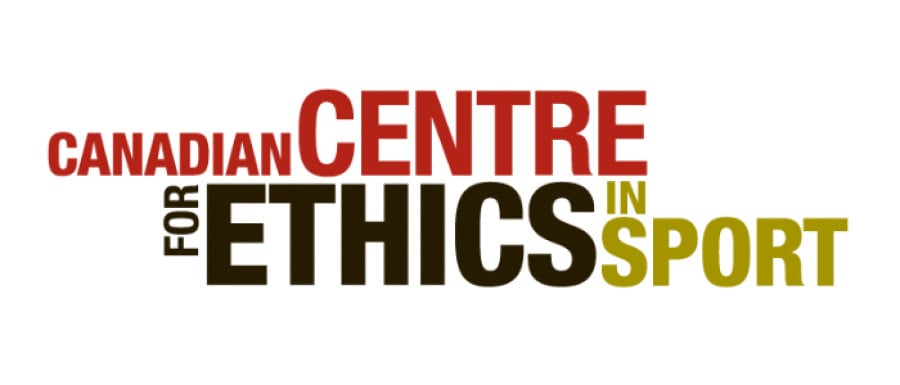CIS soccer athlete, Justin Maheu, suspended for the presence of ephedrine
Press Release
This article is written in English with a French translation underneath.
June 15, 2016 – The Canadian Centre for Ethics in Sport (CCES) announced today that Justin Maheu, a Canadian Interuniversity Sport (CIS) soccer player from Cape Breton University, received a sanction of 18 months for an anti-doping rule violation. The athlete’s urine sample, collected during in-competition doping control on October 25, 2015, revealed the presence of ephedrine.
Ephedrine is classified as a “specified substance” on the World Anti-Doping Agency Prohibited List; it is prohibited only when the urinary concentration exceeds 10 microgram/mL. Under the rules of the Canadian Anti-Doping Program (CADP), the period of ineligibility for a first violation for the presence of a “specified substance” is two years, unless an athlete can meet the conditions for eliminating or reducing the period of ineligibility.
In response to the CCES’ notification of the adverse analytical finding, Mr. Maheu admitted the anti-doping rule violation and a hearing was held to determine the sanction length. Arbitrator Brunet imposed a sanction of 18 months ineligibility from sport, terminating April 24, 2017. The athlete, who resides in Ottawa, Ontario, is ineligible to participate in any capacity with any sport signatory to the Canadian Anti-Doping Program (CADP), including training with teammates.
A copy of the full decision can be found at www.crdsc-sdrcc.ca.
The CCES is an independent, national, not-for profit organization with a responsibility to administer the CADP. Under the CADP rules, the CCES announces publicly every anti-doping rule violation. We recognize that true sport can make a great difference for individuals, communities and our country. We are committed to working collaboratively to activate a values-based and principle-driven sport system; protecting the integrity of sport from the negative forces of doping and other unethical threats; and advocating for sport that is fair, safe and open to everyone.
Un joueur de soccer de SIC suspendu suite à la détection d’éphédrine
Le 15 juin 2016 – Le Centre canadien pour l’éthique dans le sport (CCES) vient d’annoncer que Justin Maheu, un joueur de soccer de Sport interuniversitaire canadien (SIC) de l'Université du Cap-Breton, s’est vu imposer une suspension de 18 mois pour une violation des règles antidopage. Cette violation a été découverte par l’analyse d’un échantillon d’urine recueilli durant un contrôle antidopage en compétition réalisé le 25 octobre 2015, qui a révélé la présence de l’éphédrine.
L'éphédrine est identifiée comme une « substance spécifiée » selon la Liste des interdictions de l’Agence mondiale antidopage; cette substance est interdite lorsque sa concentration dans l’urine dépasse 10 microgrammes par millilitre. En vertu des règlements du Programme canadien antidopage (PCA), la période de suspension dans le cas d’une première violation pour usage d’une substance spécifique est de deux ans, à moins que l’athlète en cause puisse remplir les conditions le rendant admissible à l’élimination ou à la réduction de la période de suspension.
En réponse à l’avis du CCES concernant ce résultat d’analyse anormal, M. Maheu a reconnu avoir commis une violation aux règles antidopage et une audition s’est déroulé pour déterminer la période de suspension. L’arbitre Brunet lui a imposé une suspension de 18 mois qui prendra fin le 24 avril 2017. Durant cette période, il est interdit à cet athlète, qui réside à Ottawa, en Ontario, de participer, peu importe à quel titre, à tout sport organisé signataire du Programme canadien antidopage (PCA), y compris de s’entraîner avec ses coéquipiers.
Il est possible de consulter le libellé intégral de cette décision à www.crdsc-sdrcc.ca.
Le Centre canadien pour l’éthique dans le sport est l’organisme national indépendant et à but non lucratif responsable de l’administration du PCA. En vertu des règles du PCA, le CCES est tenu de rendre publique toute violation aux règles antidopage. Nous reconnaissons que le sport sain peut faire une grande différence pour les individus, les collectivités et notre pays. Nous avons pris l’engagement de travailler en collaboration à activer un système sportif basé sur des valeurs et animé par des principes; à protéger l’intégrité du sport des forces négatives du dopage et d’autres menaces non éthiques; et à défendre le sport juste, sécuritaire et ouvert à tous.




